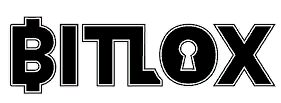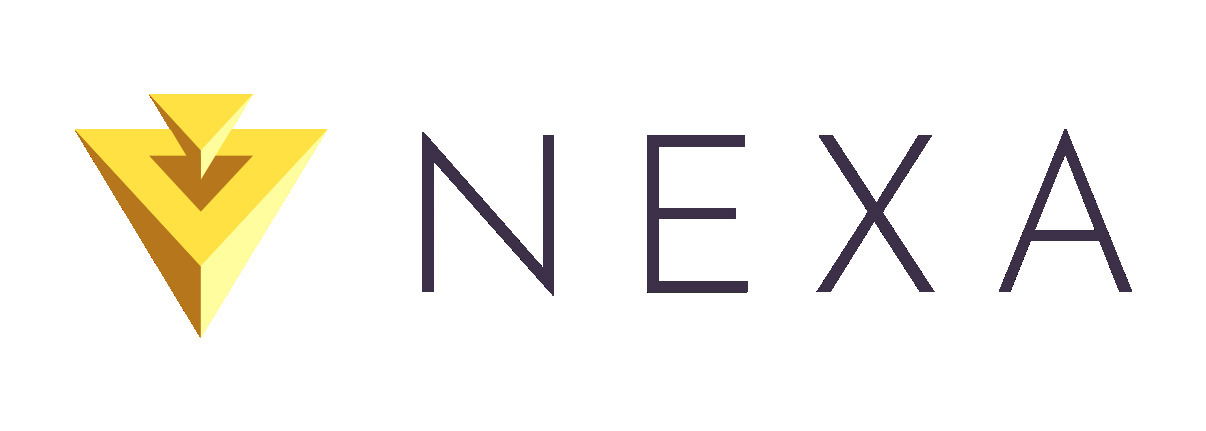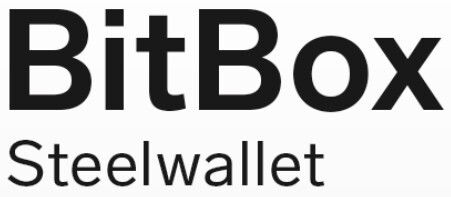What is the difference between bitcoin wallets, crypto wallets, and web3 wallets?

Is it a bitcoin, crypto, or web3 wallet?
Bitcoin wallets, crypto wallets, and Web3 wallets are digital tools used to store and manage various cryptocurrencies. While they may seem similar, there are distinct differences in their functionality and the types of currencies they support.
Everyone can probably relate to the frequencies of the terms bitcoin wallet, crypto wallet, and web3 wallet being used in the crypto wallet space. Those who’ve been in the game for a while now can easily decipher and differentiate the difference between all 3 terms. But those who’ve been on the outside and are now coming into the space are all probably thinking the same thing…
“What is the difference between bitcoin wallets, crypto wallets, and web3 wallets!?”
To no surprise, there is a difference and that divergence is becoming more and more accentuated.
To set the stage, in any industry, there are always going to be technical terminology and jargon that may more or less have similar meanings. Syntax and semantics in an industry are just as important as the functionality of them.
Let’s try to give a breakdown of all 3:
Bitcoin Wallets
The term “bitcoin wallets” was the first commonly used term to characterize the management of your private keys. Considering that bitcoin was the first digital asset in this industry, it’s no wonder that the term “bitcoin wallet” was commonly used in the beginning. It was only bitcoin that one needed to manage. The term “crypto” or “web3” wasn’t even born yet or conceived.
As the years went by, many bitcoin wallets morphed into supporting other emerging cryptocurrencies such as LTC, XRP, DASH, and etc. But their main usage was for the management of one’s bitcoins since that was more likely to be a large part of their crypto portfolio. When one said “bitcoin wallet”, it was also innocently welcomed to also be multi-currency for users.
Nowadays, bitcoin wallets have solidified itself to be an ONLY bitcoin wallet. This can be partly attributed to the divergence in the bitcoin ecosystem and everything else. Many of today’s bitcoin-only wallets are produced by hardcore bitcoin maximalists that deeply root their business in creating privacy focused products for bitcoin. This makes sense as many bitcoiners place an emphasis on not only self-custody, but the ability to create their own entropy for public key generation, offline transaction signing, avoidance of address reuse, and so on. Their whole premise is to have a more DIY or artisanal approach to private key management and to completely be “off the grid” with their keys. They have always upheld the ethos of privacy and anonymity more so than any other decentralized networks. These are the more libertarian users who could be considered “in it for the tech” and side closely with the cypherpunk movements.
f you ask any hardcore bitcoiner what their typical wallet behavior includes, the following tendencies would be, but not exclusive to:
- Doesn’t reuse addresses
- Limits on-chain transactions via layer 2 solutions
- Uses mixing services to obfuscate deterministic trails
- Prefers to leave private keys offline on cold storage solutions
Crypto Wallets
As more cryptocurrencies came into the playing field, characterizing them as “cryptocurrency wallets” or just simply “crypto wallets” was becoming more mainstream. Bitcoin wasn’t the only main attraction here. Popularity in ETH, DOGE, BNB, USDT, ADA, TRX, and more were actually diverting more attention to VCs who wanted to capitalize in the money flow. Large developer ecosystems and communities were flourishing on the scene and users wanted to catch the next “pump”.
Crypto wallets were marketed exactly for these ecosystems. To be able to hold multiple cryptocurrencies on your phone, desktop, web, or on hardware.
Nowadays, “crypto wallets” have a more general ring to it. Simply put, interpretation would include “a wallet that holds multiple cryptocurrencies” without mention of other functionality that would emanate when mentioning a “bitcoin wallet” or “web3 wallet”, which we’ll get more into next.
Web3 Wallets
Fast forward to 2023 and you’re seeing the term “web3 wallets” more often. This could be attributed to the usage of the term “web3” being also more mainstream to characterize the industry. The term “crypto” was being viewed as only pertaining to cryptocurrencies and tokens, whereas “web3” was the new trendy term to include the action in the metaverse, NFTs, and so on.
Nowadays, perceived “web3 natives” can be characterized with the following wallet tendencies:
- Freely gives out address for potential airdrops and NFT mint events
- Hands over wallet history to potential employers as a way to gauge trading performance
- Publicizes blockchain domain names, such as ENS, over social media channels
- Feels comfortable with leaving private keys online on hot wallets or centralized exchanges
- Signs transactions and proofs needed for token or NFT-gated Discord communities
As laid out in this blog piece, these wallet usages tend to categorize DeFi users and NFT flippers as these sectors demand constant engagement. These sectors are also highly classified as the more money driven arena where clout and “degen scores” tend to win favorably within a community. These are the more greed-driven users who could be considered “in it for the lambos” and have a constant tendency to ask “wen moon?”. News of online hacks and phishing attacks on centralized third parties do not really faze them.
So what term best characterizes and describes the use case for the Ballet wallet?
- Need a bitcoin only wallet? We have our REAL Series Bitcoin wallets.
Need self-custody? All of our products are self-custody. - Need to use your private key in airgapped signing transactions? We have that through our Ballet Crypto app.
- Need to connect to DeFi dApps on the desktop? We support WalletConnect.
Need to show off your NFTs while on the go? All your NFTs can be displayed in your account on the app. Need to fund multiple wallets at the same time? Use our Pay-To-Multiple function in our app. Need to pay others without making an on-chain transaction? Simply hand the physical Ballet wallet to someone else. Need to distribute physical NFTs to your community to be used as the exclusive pass in a token-gated event? Use our custom NFT cards for it. Need to hand out a personalized business card loaded with some crypto on it as a special touch? Try out our Crypto Business Card product lineup.
How does the REAL Series compare to other crypto storage solutions?
Ballet is a U.S. company that provides simple and secure cryptocurrency storage solutions for the global mainstream market. Ballet is the team behind the world’s first multi-currency, non-electronic, physical crypto wallet. The company was founded in 2019 by Bobby Lee and an international team of cryptocurrency industry veterans. Ballet is headquartered in Las Vegas, Nevada in the United States, and has an office in Shanghai, China.
Source: Ballet.com
Learn more about the best TOP 30 hardware cryptocurrency wallets
You can see this list here.
TOP 29 Hardware Wallets, the Official Online Stores
| 1 |  | Trezor hardware wallet, the official online store |  |
| 2 |  | Ledger hardware wallet, the official online store |  |
| 3 |  | KeepKey hardware wallet, the official online store |  |
| 4 |  | BitBox02 hardware wallet, the official online store |  |
| 5 |  | CoolWallet hardware wallet, the official online store |  |
| 6 |  | ELLIPAL hardware wallet, the official online store |  |
| 7 |  | D'CENT hardware wallet, the official online store. |  |
| 8 |  | SafePal hardware wallet, the official online store |  |
| 9 |  | SecuX hardware wallet, the official online store |  |
| 10 |  | BC Vault hardware wallet, the official online store |  |
| 11 |  | BitLox hardware wallet, the official online store |  |
| 12 |  | Keystone hardware wallet, the official online store |  |
| 13 |  | ProKey hardware wallet, the official online store |  |
| 14 |  | NGRAVE hardware wallet, the official online store |  |
| 15 |  | Keevo hardware wallet, the official online store |  |
| 16 |  | GridPlus hardware wallet, the official online store |  |
| 17 |  | Ballet hardware wallet, the official online store |  |
| 18 |  | OPOLO hardware wallet, the official online store |  |
| 19 |  | Foundation (Passport) hardware wallet, the official online store |  |
| 20 |  | ImKey hardware wallet, the official online store |  |
| 21 |  | Tangem hardware wallet, the official online store |  |
| 22 |  | HashWallet hardware wallet, the official online store |  |
| 23 |  | Material Bitcoin hardware wallet, the official online store |  |
| 24 |  | ShieldFolio hardware wallet, the official online store |  |
| 25 |  | OneKey hardware wallet, the official online store |  |
| 26 |  | Blockstream Jade hardware wallet, the official online store |  |
| 27 |  | Cypherock hardware wallet, the official online store |  |
| 28 |  | Keepser hardware wallet, the official online store |  |
| 29 |  | NEXA hardware wallet, the official online store |  |
















































